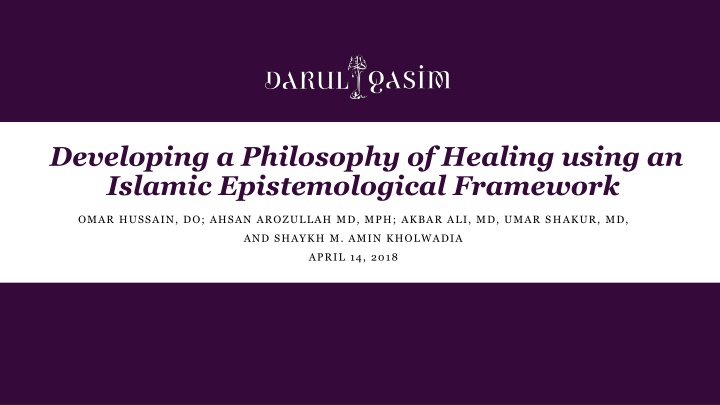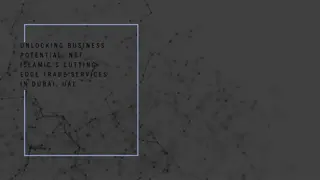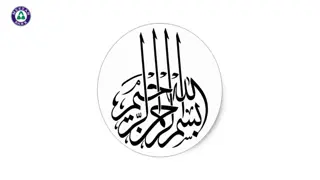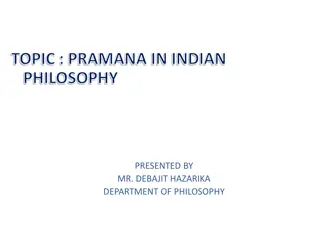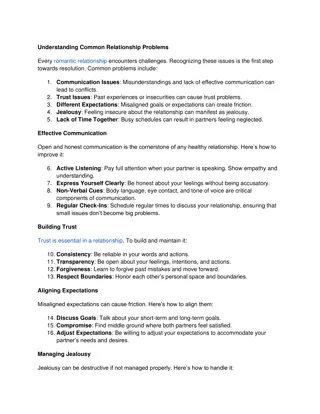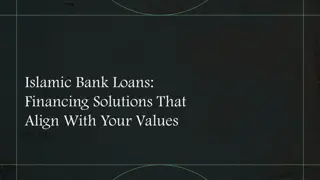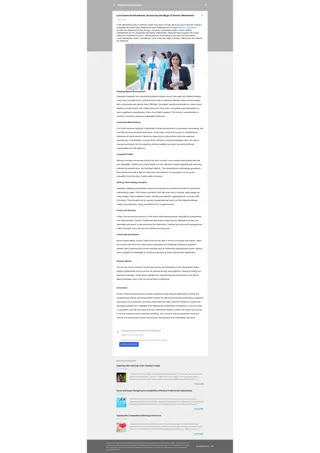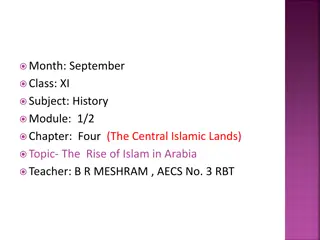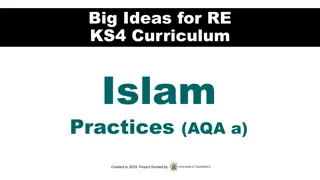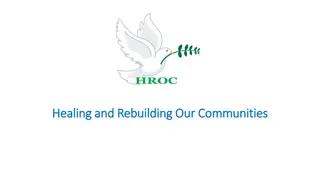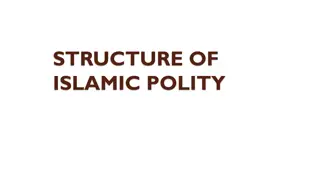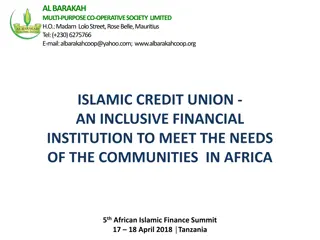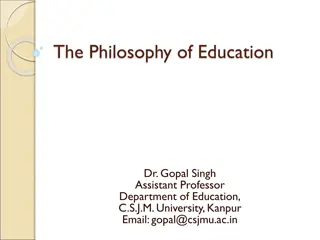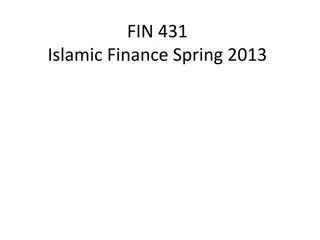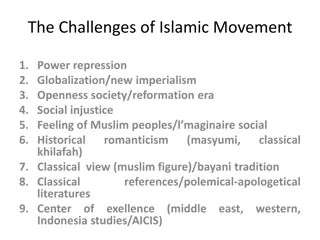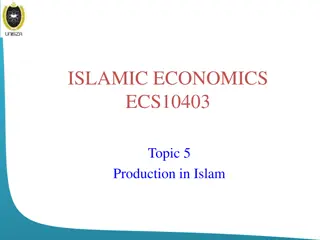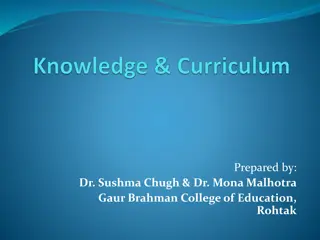Islamic Healing Philosophy Based on Epistemology
Philosophy of healing utilizing Islamic epistemological framework focuses on integrating knowledge from senses, intellect, and divine revelation for holistic healing approach guided by God's attribute of al-Shāf. This paper explores the interconnectedness of medical and religious perspectives to address conflicts and enhance treatment benefits.
Download Presentation

Please find below an Image/Link to download the presentation.
The content on the website is provided AS IS for your information and personal use only. It may not be sold, licensed, or shared on other websites without obtaining consent from the author.If you encounter any issues during the download, it is possible that the publisher has removed the file from their server.
You are allowed to download the files provided on this website for personal or commercial use, subject to the condition that they are used lawfully. All files are the property of their respective owners.
The content on the website is provided AS IS for your information and personal use only. It may not be sold, licensed, or shared on other websites without obtaining consent from the author.
E N D
Presentation Transcript
Developing a Philosophy of Healing using an Islamic Epistemological Framework OMAR HUSSAIN, DO; AHSAN AROZULLAH MD, MPH; AKBAR ALI, MD, UMAR SHAKUR, MD, AND SHAYKH M. AMIN KHOLWADIA APRIL 14, 2018
Background Medicine and religion utilize internally consistent understandings of key concepts, such as healing , as philosophical foundations for informing what and who may heal Shared beliefs in these philosophical understandings arise from underlying medical and religious epistemological frameworks that inform the discovery, development, and incorporation of knowledge Appreciating differing epistemological frameworks underpinning medical and religious understandings may address apparent conflicts and gaps between medical and religious perspectives on treatment benefits 2
Introduction Our objective is to present an Islamic epistemological framework and to begin applying that framework in creating a philosophy of healing An Islamic Epistemological Framework: Knowledge from the five senses ( Ilm al-A w l): Attained through experimentation/research Knowledge from the intellect/human mind ( Ilm al- Aql): Attained via reason, logic, abstract thought Knowledge from divine revelation (Wa y): Attained from the Prophets A holistic Islamic philosophy of healing should account for all three sources of knowledge 3
Wahy (Divine Revelation) and Inspiration Systematic learning of revealed sources facilitate understanding of prophetic knowledge Qur n as verbatim revelation Prophetic tradition (Sunnah) as non-verbatim revelation Epistemological framework also accounts for inspiration from non-human sources Including angelic and demonic inspiration as sources of knowledge While both of these non-human sources can inspire genius, applying classical Islamic theological tools can facilitate discerning the source and potential risks of that genius 4
Overview One branch of prophetic knowledge examines God s attributes A philosophy of healing based on God s attribute known as al-Sh f (the One who cures and heals) utilizes this branch of prophetic knowledge The paper will explore the use of God s attribute of al-Sh f in the Qu ran and prophetic traditions and utilize the results of this exploration to derive an al-Sh f based model of healing 5
Quran O humankind! There has come to you [in this Qur n] an [inspired] admonition from your Lord, and a healing for all that is in the [human] breast, as well as guidance [for your salvation], and a mercy for the [well-being of the] believers. (S rah Y n s, Q 10:57) 6
Quran Thus do We send down [in the verses] of the Qur n that which is a healing [for body and soul], and a mercy to the believers. (S rat al-Isr Q 17:82) 7
Quran And He (God) will cure the hearts of the believing people. (S rah Tawbah, Q 9:14) 8
Quran Say [to them]: It [The Qur n] is, for those who believe, a source of guidance and cure. (S rat al-Fu il t Q 41:44) 9
Quran [Ibr h m supplicates further] and when I become ill, it is He (God) Who grants me cure. (S rat al-Shu ar Q 26:80) 10
Quran There issues from their insides a [sweet] fluid, its colors varying in which there is healing for people. (S rat al-Na l Q 16:69) 11
Prophets Dua (Prayer) : On the Authority of Aishah, she narrates: When Allah's Messenger visited any ill person he would supplicate for him and would say: Remove the sickness, Lord of Mankind, and grant cure You are the Curer; there is no cure but that which You grant such cure that leaves no sickness remaining behind. (Ibn al- ajj j, Muslim, Sa Muslim, Hadith# 2191) 12
Conclusion Studying medical and religious epistemological frameworks is critical to resolving conflicting understandings on what heals and what needs healing We began the process of creating a philosophy of healing, utilizing a religious epistemological framework, based on God s attribute known as al- Sh f (the One who cures and heals) prophetic knowledge as used in the Qu ran and prophetic traditions 13
